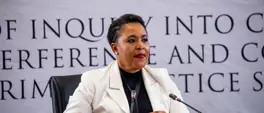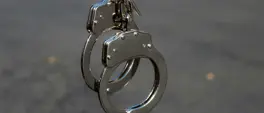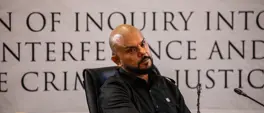DIRCO conveys disapproval to Moroccan govt for receiving MK Party's Zuma with SA national symbols
Lindsay Dentlinger
6 August 2025 | 10:28The department said on Wednesday that the manner in which Zuma was received appeared to give the impression that it was a state-endorsed visit.

MK Party leader, Jacob Zuma (left), and Moroccan foreign affairs minister, Nasser Bourita, during a meeting on 15 July 2025. Picture: @MarocDiplomatie/X
CAPE TOWN - The Department of International Relations & Cooperation (DIRCO) said it has conveyed first-hand to the Moroccan government its disapproval of having received former President Jacob Zuma in Rabat against a backdrop of South African national symbols.
Zuma travelled to the country in July and extended his MK Party's support for Morocco’s ongoing occupation of Western Sahara, which flies in the face of government’s official position.
The department said on Wednesday that the manner in which Zuma was received appeared to give the impression that it was a state-endorsed visit.
The former president's visit to Morocco in July irked government and the African National Congress (ANC), which labelled him a sell-out for flip-flopping on South Africa’s official position - that Western Sahara should be an independent state.
The department said that while it respected Morocco’s right to invite and receive guests, it strongly protested against the use of South African national symbols for a meeting with an opposition party leader who is a non-state actor.
Spokesperson Chrispin Phiri: "This characterisation is inconsistent with established diplomatic protocol as the participants did not represent the official positions, or engagements of the South African state."
Phiri said that government’s position had been conveyed to the Moroccan foreign affairs minister, Nasser Bourita, with whom Zuma also met.
M. Nasser Bourita a reçu, ce jour à Rabat, l’ex-Président de la Répubique d'Afrique du Sud et leader du parti MK, M. Jacob Zuma, qui a fait état du soutien de son parti à la proposition marocaine d’autonomie tout en estimant qu’elle garantit au Maroc sa souveraineté sur le Sahara pic.twitter.com/7ikY9FBNfr
— Maroc Diplomatie 🇲🇦 (@MarocDiplomatie) July 15, 2025
He said that Zuma’s meeting could not be recognised as an official bilateral meeting and the implications drawn from it were firmly rejected.
Get the whole picture 💡
Take a look at the topic timeline for all related articles.
















